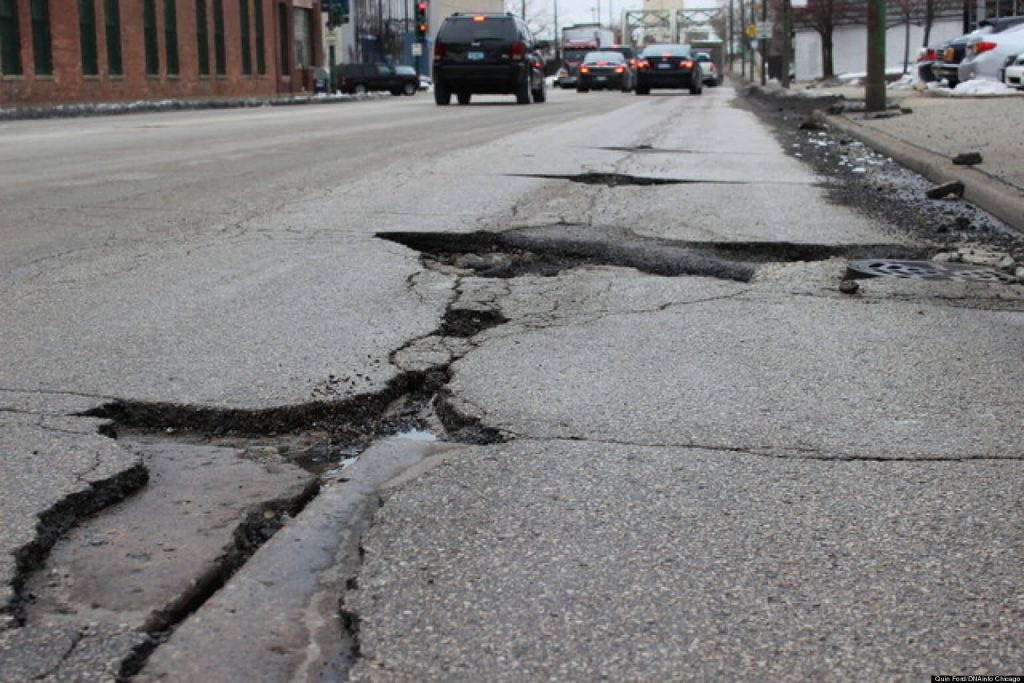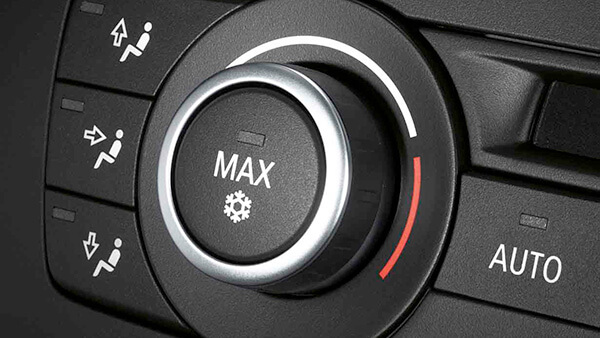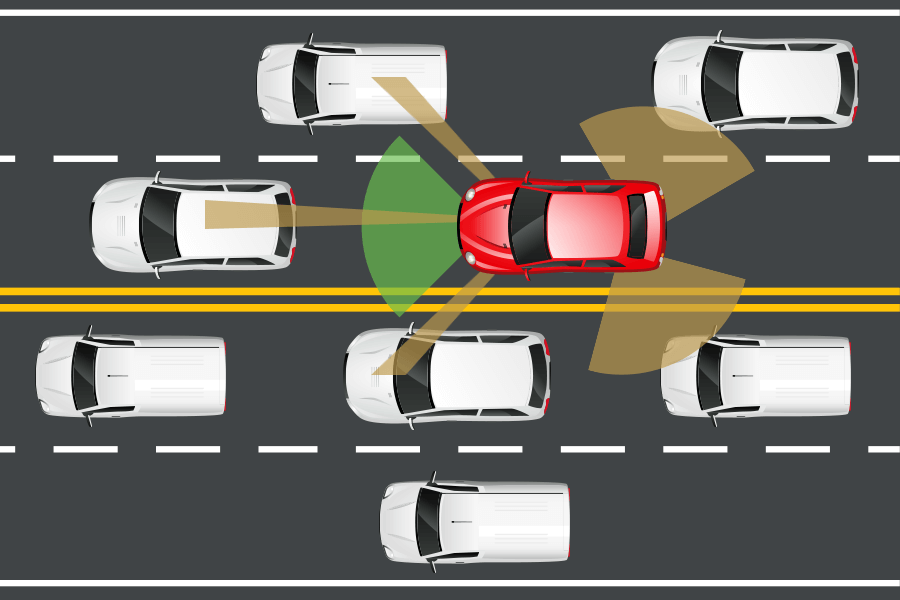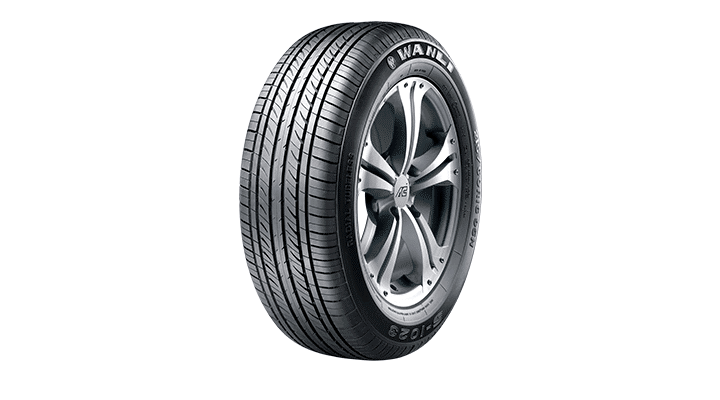What are potholes and why do they form in the first place. For those of you who have never hit one of these guys when spinning at 80Kph, you may not know the blood rush that comes after that.
Yes! These are very serious road imperfections that can render you or your car to the ICU. Potholes form especially during rainy seasons or when water constantly flows on the tarmac.
Tar is a great enemy of water and over constant contact with water, its ability to bind the rocks weakens hence letting loose.
The agitation between the car tires and the surface acts upon the soft spot and eventually, a hole begins to form on the road surface.
How potholes affect drivers
Potholes are notorious for wreaking havoc on cars: Kenyan drivers pay approximately 600 million, or an average cost of KES 20000 each, annually to fix car damage caused by potholes.
Worse, many motorists encounter pothole problems every rainy season such as this. Making pothole-related repairs an almost annual necessity.
However, potholes aren’t only a problem in rainy places. Even in sunny climates like Mombasa, over 50% of roads are rated as being in poor condition and are often riddled with potholes.
Feeling the jolt from hitting a pothole – and the uneasiness of facing an expensive repair – is something drivers everywhere have to deal with.
What to check if you hit a pothole
If you drive through a pothole, check these four areas to make sure it didn’t cause a problem that needs to be fixed:
Tires: Tires are meant to be the only part of your car that touches the road, so it isn’t a surprise that they’re susceptible to pothole damage like sidewall bulges, tread separation or flats.
These can happen because potholes often have a hard edge that compresses the tire against the wheel on impact, slicing the rubber or snapping the belts that hold a tire together.
Driving on a blown-out tire isn’t safe, but you may be able to repair it. However, a tire with a sidewall bubble or separated tread needs to be replaced right away.
Cars with low-profile tires are particularly prone to pothole damage. Make sure your tires are always correctly inflated to help prevent these types of issues.
Wheels
Wheels: Scraping your rims never looks good, but even the worst recklessness can’t damage a wheel like a pothole can.
Hard angles in potholes apply impact force to wheels in ways they weren’t designed to handle, leading to bends, chips, or cracks.
A bent wheel won’t roll smoothly and may not be able to form an airtight seal with a tire. Chips are usually easy to notice since they look like a chunk missing from the rim where it meets the tire.
However, cracks can be subtle hairline fractures along the wheel circumference or in one of the spokes.
Brake dust and road grime can make cracks difficult to spot, so give your wheels a thorough clean and inspection to check.
Bent wheels can sometimes be repaired, but chipped or cracked wheels can fail catastrophically and must be replaced entirely.
Suspension: Car suspension is designed to absorb impacts and provide a smooth ride, but there’s a limit to how much it can handle.
Sudden, jarring hits against potholes can cause a variety of suspension problems, including misalignment, broken ball joints, and damaged shocks or struts.
Suspension bent out of alignment can usually be put back into place by a qualified mechanic, but until it’s fixed you may notice your steering wheel is off-center, your car pulls in one direction, the handling feels loose, and your tires wear unevenly.
Unusual vibrations and sounds, wandering steering, poor ride quality, or the vehicle leaning to one side can indicate broken ball joints, struts, or shocks, which usually need to be replaced outright.
It can be difficult to correctly diagnose suspension damage. So it’s best to have an experienced mechanic inspect the entire system if you notice any of these symptoms.
Exhaust
Exhaust: Since exhaust pipes run along the undercarriage of a car, they’re a perfect target for potholes in the road.
Deep potholes can cause a car to scrape the undercarriage against the pavement. This potentially dents or rips a hole in the exhaust pipes, muffler, or catalytic converter.
You may experience a loss of power or unpleasant noises if there’s a hole in your exhaust system.
But perhaps worse is the fact that your car will spew out harmful pollutants. What’s more, a leaky pipe can let exhaust fumes into the cabin, posing a potentially serious health hazard.
Body: Generally speaking, the lower a car is to the ground, the better it handles. But cars that sacrifice ride height in pursuit of sportiness are more likely to be damaged by potholes.
In addition to the issues listed above, potholes can scrape against low-hanging bumpers or side skirts.
This type of damage is usually cosmetic and doesn’t affect safety or performance. It’s still something that drivers who care about their car’s looks want to avoid.
If you drive a low, sporty car, use its sharp handling to safely maneuver around any potholes you see.
The good news is that most potholes on the highways aren’t big or deep enough. They do not pose a threat to your car.
With correctly inflated tires and aligned suspension, chances are it will roll right through them.
However, as seasons change and potholes grow, you need to stay alert and avoid them as best as you can. If you don’t, you risk expensive car part repairs and replacements.






